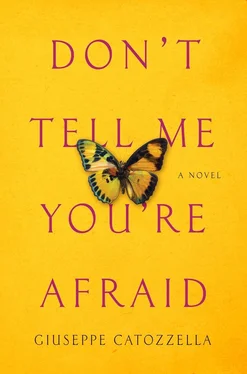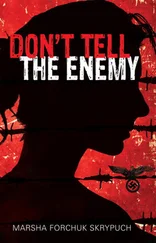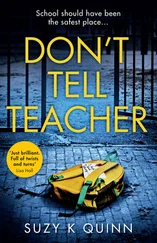When they came across me and Abdi, they looked at us to see who we were, then moved on. Not a word, not one question. Every now and then a smile of compassion or encouragement, when they realized by the colors of our outfits that we were Somalis.
We weren’t stars.
Then we went back inside; the two-hundred-meter heats had been called.
Walking toward the tunnel leading into the stadium, I thought I spotted a black British athlete out of the corner of my eye: red, white, and blue tracksuit, a familiar face. I turned around to get a better look and my heart skipped a beat.
Fifty meters away, in the middle of the green field, was Mo Farah. He was standing beside a sprinter who would shortly run the 4×100-meter relay. The latter was sitting on the ground stretching his muscles, and Mo was saying something to him. That delicate profile of his, like an antelope. Then they laughed together. I felt my knees suddenly grow weak, and at the same time I was tempted to run over to him, to tell him who I was, tell him about the worn-out photo I’d kept next to my mattress for nearly ten years. But I hesitated too long, because Duran took me by the elbow and led me inside. They were calling for us to enter the locker room.
“Come on. It’s your turn, Samia,” was all he said, rousing me from my daydream.
I had thirty minutes to myself: It was the period set aside to focus before the heat. I had to get Mo Farah out of my head and think only of the race.
I was alone. There was a massage table in the middle of the locker room. I lay down, closed my eyes, and pretended it was the grass at the stadium in Mogadishu. I tried to let go of any tension.
Suddenly, as if no more than a second had passed, I heard someone knocking gently at the door.
It was Duran. It was time.
Outside the locker room, as we began gathering in the hallway, I saw myself for what I was: different from the others. The wall of the tunnel leading out to the track was lined with mirrors: With all of us together like that, our images were too conspicuous for me not to notice.
My legs, compared with those of the other women, looked like two dry sticks. They were straight, with no muscles. There were none of the bulges that I saw on the others’ legs: I had no quadriceps, no calves. Also no deltoids, no trapezii, no biceps. The others looked like bodybuilders compared with me. Exaggerated legs and shoulders, calves extremely taut. I not only didn’t have the machines to develop those muscles, but I didn’t even have a coach. And I didn’t have enough food, except for what Hooyo managed to get hold of. Angero and water. Or rice and boiled cabbage.
I was the shortest, the thinnest, and the youngest. It exposed me: That merciless mirror exposed me before the race.
In addition, the others wore beautiful, brightly colored outfits that matched the colors of their countries’ flags. T-shirts and shorts in high-tech fabrics that clung to their powerful bodies. I had on my usual good-luck garb. A white T-shirt that Hooyo had washed the week before and that I had protectively left at the bottom of my bag. It still smelled of ash soap. My black tights that came below the knee. On my head, the white headband that Aabe had given me nearly ten years ago and that I had always brought with me to every race leading up to that day.
None of the other women looked at me. They were perfectly focused.
I should have been too, but it was all so different from what I was used to. I felt like I was in an unreal situation, in a dream. The TV cameras, the reporters, the stands overflowing with people, that continuous low roar that forced you to shout in someone’s ear to make yourself heard, the athletes from all over the world, the scents of their deodorants, right there in front of me, under my nose. Veronica Campbell-Brown. Everything was simply incredible.
At that moment I remembered Mo Farah, my fellow countryman, perfectly at ease in the middle of the track, joking in English as he spurred on a white athlete. The opposite of me. By the time he was nine, he had already moved to England, so naturally it all seemed normal to him. He’d gone with his family. I was seventeen, and it was only the second time I had set foot outside my country. And the first time I’d traveled outside my continent. The first time I was among so many whites, so many Europeans, Americans, Chinese. I was indeed fortunate.
For a moment I saw Mo’s face again, relaxed, calm, confident. I thought maybe he’d achieved an advantage that I could never hope to reach. Then I told myself that was silly; I too would get to where he was.
After five very long minutes we were called and went out, hit by deafening applause, all for Campbell-Brown. The humidity was very high; it made the tartan surface of the track shimmer in the distance.
It was the same track as always, the same length, but to me it seemed much longer. Twice as long, never ending.
I walked past Veronica Campbell-Brown: beautiful, flawless, imperious as a statue, fragrant as a diva. What perfume did she wear? All the power of those legs seemed to reside in their trim shape.
I was in the second lane, the innermost. To my left, the first lane was empty. On the right was Sheniqua Ferguson, the one everyone considered promising, originally from the Bahamas. In the fourth lane was the Canadian Adrienne Power, she too a strong runner.
In those interminable seconds I tried to do the one and only thing I had to do: focus my thoughts, which threatened to carry me away.
I crouched.
I placed my feet on the starting block, the right one and the left, pretending I was alone, that I was at the CONS stadium for a training session with Abdi. Or in the courtyard as a little girl, with Alì checking my feet on the block that Aabe had built from fruit crates.
It was just me and two hundred meters of tartan track in front of me.
Leaning on my knees, I placed my hands on the white starting line, fingers splayed, as Alì had taught me. One. Two. Three. Four. Five. Six. Seven. Eight. Nine. Ten. A number for each finger, to concentrate on the wait.
A thought of Aabe, as a good-luck charm.
Then, as if inside an infinite bubble, I waited only for the firing of the starting gun.
Boom . The pistol shot. A loud roar from the crowd.
The other runners took off like gazelles.
Incredibly swift, like dragonflies or hummingbirds.
They left their blocks before I even knew it.
I knew I would lose the race from the very first moment. With each stride the distance between me and the pack grew. An unbridgeable gap. My opponents sliced through the air; from behind they seemed like fillies flying in the wind.
I continued running. I held my head up and I pushed hard.
I was still at the curve when others were already across the finish line, catching their breath.
I ran the second half of the lap alone. But in those last fifty meters an unexpected thing happened.
Some of the spectators stood up and began clapping. In sync. They were urging me on, shouting my name, encouraging me. Like the day of my first win at the CONS stadium. Only this time the noise was deafening.
I would have preferred that they hadn’t cheered. That they hadn’t noticed I was so inferior.
I cut through the tape almost ten seconds later than the first runner, Veronica Campbell-Brown.
Ten seconds. An infinity.
I didn’t feel shame, in any case. Only a strong sense of pride for my country. Instantaneous, as soon as I passed the finish line. People continued cheering as Campbell-Brown waved to the spectators and gave one interview after another, surrounded by a swarm of reporters.
In silence I completed a victory lap with Somalia’s flag around my neck. Without fanfare, without anyone, perhaps, noticing. As I ran, my eyes searched for Mo Farah in the middle of the field. He wasn’t there. I took a closer look all around. He was nowhere to be seen. He must have gone back inside, lost in the endless meanders of the Olympic stadium.
Читать дальше




![Ally Carter - [Gallagher Girls 01] I'd Tell You I Love You But Then I'd Have to Kill You](/books/262179/ally-carter-gallagher-girls-01-i-d-tell-you-i-lo-thumb.webp)







